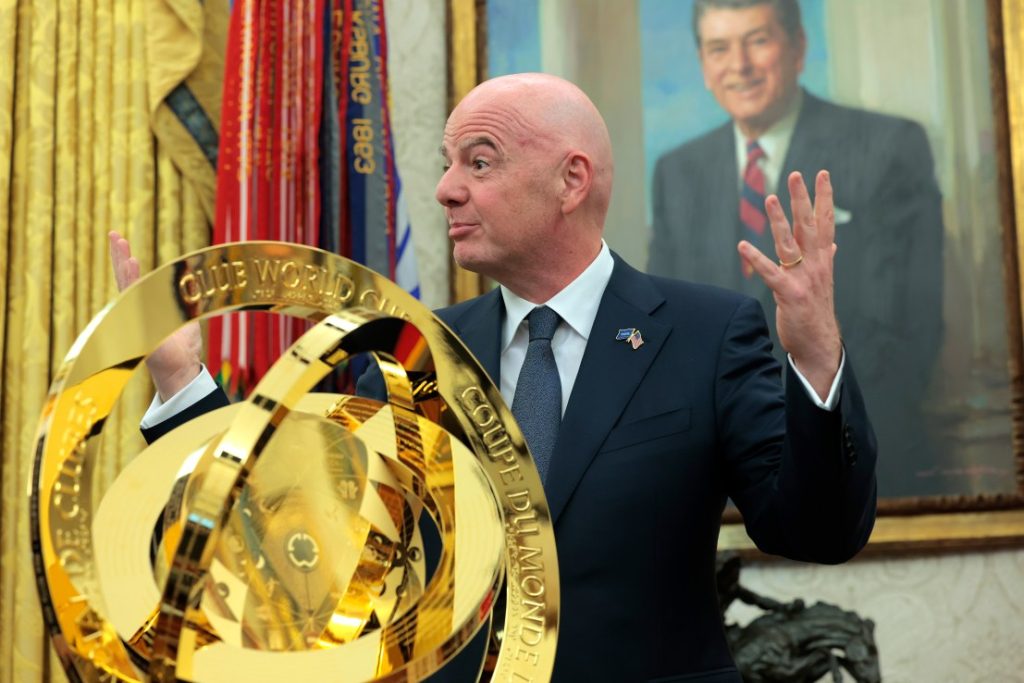
This summer, the spotlight shines brightly on the expanded Club World Cup hosted in the United States, where football titans Manchester City and Chelsea have the potential to clinch a formidable prize of £97 million. FIFA’s announcement confirming the allocation of $125 million to the tournament winner from a colossal $1 billion prize pool underscores the tournament’s allure and competitive fervor.
Financial Incentives and Distribution
FIFA’s strategic move to bolster the tournament’s appeal involves distributing $500 million among the 32 competing teams, with further allocations based on individual club performance. This financial model ensures teams like Manchester City and Chelsea, with their remarkable standings, receive substantial shares more significant than their counterparts from regions such as Asia and Oceania.
Gianni Infantino, FIFA President, stated that the organization will reinvest all tournament revenues back into club football, highlighting that FIFA’s reserves remained untapped. This distribution reflects FIFA’s intention to enhance the global football ecosystem, reiterated by Infantino’s commitment to not retaining any portion of the tournament’s funds.
The Path to Glory
The tournament commences on July 15, with Chelsea leading England’s charge the following day, engaging Brazil’s Flamengo, Tunisia’s Esperance de Tunis, and an undisclosed team stepping in for Mexico’s Club Leon. Club Leon’s withdrawal results from ownership overlaps with Liga MX’s Pachuca, necessitating their replacement.
Manchester City, on their quest for glory, prepares to face Morocco’s Wydad AC, UAE’s Al Ain—owned by the sibling of City’s owner Sheikh Mansour bin Zayed Al Nahyan—and Italy’s Juventus. The diverse composition of participating teams promises exhilarating encounters, fostering cross-continental rivalries that capture the imagination of football devotees worldwide.
Solidarity and Long-term Vision
Beyond the immediate competitive stakes, Infantino highlights an innovative solidarity investment programme, earmarking an additional $250 million to global club football. This pioneering initiative aims to promote inclusivity within the sport, reinforcing FIFA’s mission to make football a truly global affair.
The programme’s design not only rewards sporting prowess but also encourages the advancement of the sport’s grassroots levels, ensuring longevity and growth in emerging football markets. As clubs from varied backgrounds converge on the grand stage, the tournament turns into a celebration of football’s expanding reach and shared passion.
With Chelsea and Manchester City poised as favorites but facing tough challenges, this summer’s Club World Cup promises drama and excitement both on and off the pitch. As anticipation builds, the tournament is not merely a contest of elite football skills but a convergence of global cultures, fostering unity and mutual respect through the shared language of football.
The Future of the Club World Cup
As FIFA continues to refine the Club World Cup’s format and scope, the 2025 edition sets the tone for subsequent years. The synergy between competitive excellence and financial objectives creates opportunities for deeper club investments, potentially reshaping the dynamics of international club tournaments.
The Club World Cup serves as a reminder of FIFA’s capacity to innovate within the sport, setting the stage for future iterations to captivate audiences and enrich football communities worldwide. As the tournament unfolds, stakeholders, fans, and players alike will watch keenly, knowing its outcomes may influence the trajectory of club football in the coming decades.




